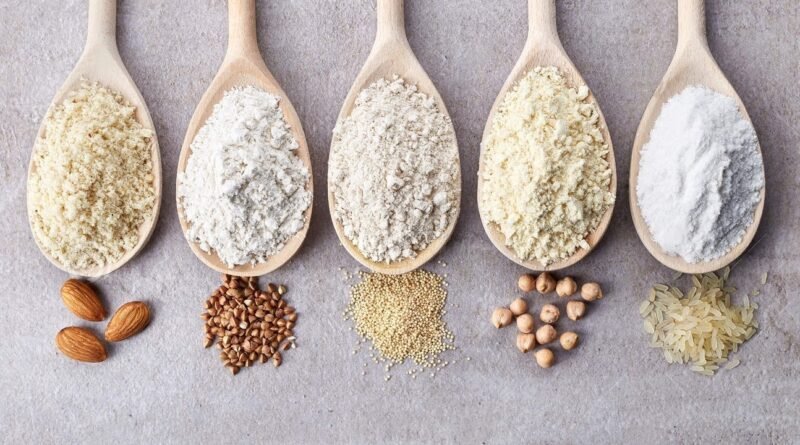What can be Eaten in a gluten-free diet?
Introduction
Living with celiac disease presents challenges due to the need for strict compliance with a gluten-free diet. This autoimmune disorder impacts individuals who experience an adverse response to gluten, a protein present in wheat, barley, and rye. In this extensive guide, we will delve into the significance of a gluten-free diet for those with celiac disease and offer valuable insights on suitable food choices to sustain a nourishing and satisfying lifestyle.
Understanding Celiac Disease
Celiac disease is a chronic digestive disorder that affects the small intestine, causing an immune reaction to the consumption of gluten. The immune response damages the lining of the small intestine, leading to various uncomfortable and potentially serious symptoms. For individuals with celiac disease, following a gluten-free diet is essential for managing their condition effectively.
The Impact of Gluten on Celiac Patients
Gluten, a protein present in many grains, poses significant health risks for individuals with celiac disease. Even a minute intake of gluten can activate the immune system, causing distressing symptoms like abdominal pain, diarrhea, bloating, and fatigue. Failure to address celiac disease can result in enduring complications, such as malnutrition, osteoporosis, and elevated susceptibility to specific cancers.
Benefits of a Gluten-Free Diet
Adopting a gluten-free diet offers numerous benefits for individuals with celiac disease. Firstly, it allows the body to heal and repair the damage caused by gluten consumption, leading to improved digestive health. Secondly, it alleviates the unpleasant symptoms associated with celiac disease, enhancing overall well-being and quality of life. A gluten-free diet also reduces the risk of complications and associated conditions.
Gluten-Free Grains and Starches
While individuals with celiac disease must avoid conventional gluten sources like wheat, barley, and rye, they have access to a plethora of delectable substitutes. Gluten-free grains and starches, such as rice, corn, quinoa, potatoes, and tapioca, can be seamlessly integrated into a gluten-free diet, offering vital nutrients, fiber, and sustained energy.
Fresh Fruits and Vegetables
Fresh fruits and vegetables form the cornerstone of a nourishing and well-rounded gluten-free diet. Bursting with vitamins, minerals, and antioxidants, these wholesome marvels not only satiate hunger but also promote optimal holistic well-being. Whether consumed raw, cooked, or blended into delightful smoothies, fruits, and vegetables are versatile and indispensable elements of a gluten-free lifestyle.
Lean Proteins
Protein stands as a vital macronutrient, indispensable for numerous bodily processes, and playing a pivotal role in a gluten-free diet. Opting for lean protein sources like poultry, fish, eggs, legumes, and tofu ensures both safety and nutrition for individuals with celiac disease. These protein-rich choices furnish essential amino acids, fostering tissue mending, muscle development, and overall vigor.
Dairy and Alternatives
A considerable number of individuals with celiac disease encounter lactose intolerance or sensitivity as well. Nonetheless, dairy products per se are devoid of gluten, permitting those who can tolerate them to savor a diverse array of choices. In the case of lactose intolerance, several lactose-free alternatives, including almond milk, coconut milk, and soy milk, offer vital nutrients without eliciting gluten-related symptoms.
Navigating Gluten-Free Baking
There is a prevalent misconception regarding the limitation of enjoying baked goods on a gluten-free diet. However, the extensive availability of gluten-free flours, baking mixes, and recipes completely refute this notion. It is entirely feasible to relish delectable homemade treats while maintaining a gluten-free lifestyle. Versatile alternatives like almond flour, coconut flour, and tapioca flour exemplify the diverse options for gluten-free baking.
Gluten-Free Snack Options
Snacking can be a source of frustration for those on a gluten-free diet, as many popular snack foods contain gluten. However, there is an increasing range of gluten-free snack options available, including gluten-free granola bars, popcorn, rice cakes, and nut mixes. These snacks not only satisfy cravings but also provide necessary nutrients between meals.
Dining Out and Traveling Gluten-Free
Maintaining a gluten-free lifestyle while dining out or traveling can seem daunting, but with careful planning and communication, it is entirely feasible. Many restaurants now offer gluten-free menu options, and it is important to inform waitstaff about your dietary restrictions. Additionally, researching gluten-free-friendly establishments and packing gluten-free snacks can help ensure a worry-free experience.
Gluten-Free Labels and Certification
When shopping for gluten-free products, it is crucial to look for reliable labels and certifications. Gluten-free certifications from recognized organizations provide assurance that the product has undergone rigorous testing and meets the strict gluten-free standards. Reading ingredient labels and understanding common sources of hidden gluten is also essential for avoiding accidental consumption.
Overcoming Challenges and Embracing the Gluten-Free Lifestyle
Living with celiac disease and adhering to a gluten-free diet can present challenges, but with the right mindset and support, it can also be an opportunity for growth and improved well-being. Connecting with support groups, educating oneself about celiac disease, and experimenting with new gluten-free recipes can make the transition to a gluten-free lifestyle more manageable and enjoyable.
Consulting with a Gastroenterologist and Registered Dietitian
If you suspect you have celiac disease or have been recently diagnosed, it is essential to consult with a gastroenterologist and a registered dietitian specializing in celiac disease. They can provide personalized guidance, develop a customized gluten-free eating plan, and monitor your progress to ensure optimal health and nutritional status.
The Importance of Regular Check-ups
Regular check-ups with your healthcare team are crucial for individuals with celiac disease. These appointments allow for ongoing monitoring of your condition, evaluation of nutrient levels, and the identification of any potential complications. By staying proactive and vigilant, you can maintain your health and effectively manage celiac disease over the long term.
Conclusion
In conclusion, a gluten-free diet is essential for individuals with celiac disease to manage their condition effectively and live a healthy life. By embracing gluten-free grains, fresh fruits and vegetables, lean proteins, and other safe and delicious options, individuals with celiac disease can maintain optimal health and well-being. With the right knowledge, support, and mindset, the gluten-free lifestyle can be a fulfilling and empowering journey toward improved health and vitality.
This content is published for informational purposes only and cannot replace the work of a professional. We recommend that you consult with your trusted specialized professional.



